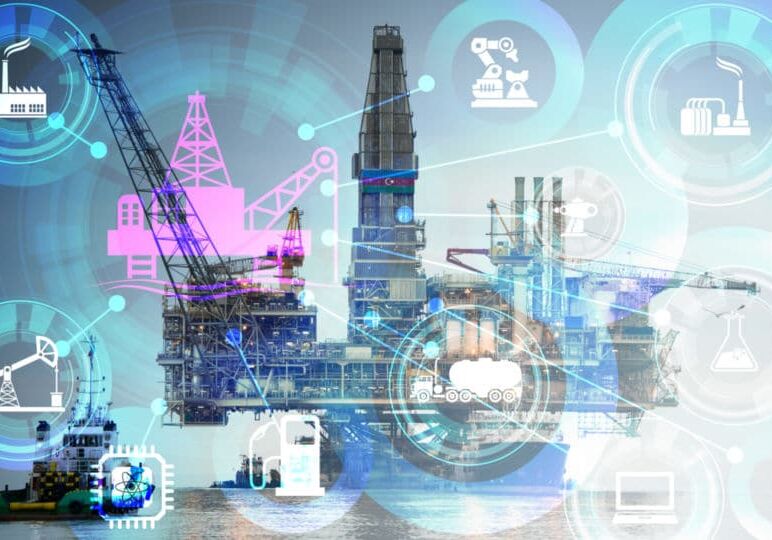Connectivity and Collaboration: Pertamina on working together in a post-pandemic future

The new distributed workforce may be isolated. But in this disconnected climate, integration between sectors and strategies is all the more important.
This is the firm belief of Rizki Ekananda, Sr. Specialist Process Development Research at PT. Pertamina, as his sector navigates the “current extraordinary circumstances [that] will make every individual within the organization” part of the inevitable change driven by digitalisation.
He speaks to Asian Downstream Insights about how vertical integration can build operational resilience, technology’s starring role in the Energy’s Transition’s next act, and why collaboration is key to success in an increasingly competitive market.
Post-pandemic priorities
“Changing consumer habits [are] affecting refinery products demand, digitalization acceleration, and budget”, observes Ekananda. “Priorities are shifting towards quick-win projects”.
In his view, post-pandemic recovery will force business to accelerate digital adoption and force business leaders to rethink their vision and their mission. This means overcoming traditional siloes, and working towards greater collaboration across departments, sectors, and generations.
Keeping up with digital acceleration
Digitalisation will play a principal role in shaping the new era of the oil and gas downstream industry. As Ekananda explains:
“Digital twins will enable near real-time assessment of plant conditions and operations and give insight on how to optimize [them]. To some extent predictive capability will help us operate more safely and profitability”
Increased computing horsepower and big data analytics will enable more realistic refinery simulation, and allow operators to digest vast amounts of refinery process data and execute decision making at rapid velocity. In this fast-moving future, where the biggest challenge is “Keeping pace with technological changes, newly developed standards and requirements”, the importance of being agile and connected goes further than just your data. It stretches to how you run your business.
Vertical integration is on its way up
One way operators are working together to tackle next generation challenges is through vertical integration between upstream, midstream and downstream. Many of the major oil and gas operators have discussed vertical integration as a sound energy strategy and a tool to build resilience against the economic challenges to come.
For Ekananda, “vertical integration between downstream, midstream and upstream will have a significant role in keeping competitive by enabling greater supply chain control, lower production cost, and reducing overhead cost between each silo”. This collaboration can help avoid duplicating solutions or tasks along the supply chain, and increase communication, leading to greater overall business performance.
Petrochemical partnerships
This collaboration between sectors is all the more important, at a time when business models themselves are shifting. As Ekananda points out, in a new normal, defined by lower fuel demand, changes in consumer habits and the rise of the sharing economy, FCC operators and the rise of the sharing economy, operators must “shift [their] products…toward petrochemicals such as ethylene, propylene, & butylene”.
Here again, collaboration is key. What was previously an “arms’ length relationship” between traditional refining and petrochemicals is now an increasingly integrated partnership. Traditional FCC and fossil fuels operators are reconfiguring their infrastructure to align to growing petrochemical demand, and Asia is leading the way. Several major facilities under construction in China aim to transform 40% of their oil into petrochemical products.
For Ekananda, refineries in Indonesia will need to dedicate resources and budget towards “revamping, upgrading, or even rebuilding fuel and petrochemicals refineries that [are] tightly integrated”. At the same time, investment in new technologies will “also enable [existing] refineries to become nimbler and more efficient”.
Digital-driven sustainability
It isn’t just economic efficiency that is at the forefront of downstream leaders’ minds. Many operators are shifting their strategies towards a more sustainable future. Ekananda believes that “Digitalization can be seen as a quick win option to reach sustainability targets”.
Part of this is innovation’s capacity to increase the “availability and affordability of renewable energy, and infrastructure”. An example of this is developments in electrolysis technologies, which will facilitate the large-scale production of Green hydrogen, a low emissions fuel, predicted to account for 22% of our total energy needs by 2050.
As sustainability increasingly becomes a corporate, CSR and ESG concern, Ekananda firmly believes that “Diversification, digitalization and new technology will become key to adapt to stakeholder’s sustainability demands.”
Tackling the future together
As companies hurtle towards digital change and 79% of oil and gas organisations deploy AI technologies to plan their future business strategies, Ekananda has advice for their people to keep pace.
“Be ready to adapt, be a tech savvy, be a fast learner, and learn to use technology as a leverage for everything that we do”.
As automation thrives, those who lead will be “those who can bring new innovation to the industry”. These digital savvy leaders will set the pace across all verticals, sectors, and employees, in an industry where an overwhelming 82% believe innovation will be critical to their organizations’ success in the next three years. As Ekananda says, “we are in an exciting time”. And we are in it together.
Read more:
- HyIS-one Selects Emerson as Automation Partner for Korea’s Largest Hydrogen Refueling Station for Commercial Vehicles
- Decarbonize FCCU Catalytically
- How Natural Gas Accelerates the Path to Hydrogen
- A guide to industrial AI and digital transformation
- Case Study: Material transition to aerogel insulation leads to energy efficiency and improved thermal management